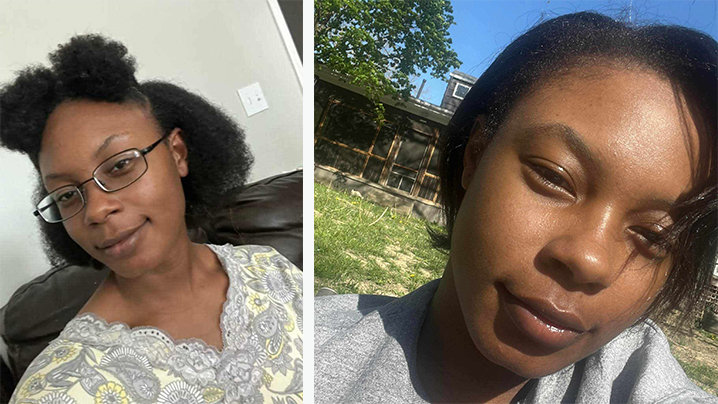Officials urge precaution as WNV season winds down
Published 5:00 am Friday, October 10, 2008
Dakota Brooks didn’t think too much about being sick shortlyafter an early summer fishing venture.
As it turned out, however, the 18-year-old Lincoln Countyresident had contracted a case of the West Nile Virus, one of fourreported this year in the county. She said the onset of the virusfeels like normal sickness but quickly intensifies.
“I thought I was just plain sick,” Brooks said. “I was running afever and had a bad headache, my blood pressure was up and hadmuscle pains in my leg.”
Trending
Brooks said she went to the doctor for the leg pain and wasdiagnosed with WNV. She said she stayed in the hospital for twoweeks, and it took another three weeks after her release before shestarted feeling better again.
“I felt bad for a month and a half,” Brooks said. “It’s likewhen you have the flu, but multiplied by like 10.”
Brooks, who was not wearing mosquito repellant while she wasfishing, had one piece of advice for anyone spending timeoutdoors.
“Wear insect repellant at all times,” she said. ‘It can happento anybody.”
Even though the peak season of mosquito activity ended at theclose of September and the number of WNV cases is expected to dropoff, state health officials and city leaders continue to urgeresidents to protect themselves against mosquitoes after theMississippi State Department of Health reported Lincoln County’sfourth human case of West Nile Virus in 2008 this week.
The department reports 96 cases of the virus in Mississippi thisyear, resulting in three deaths. The state’s case total is thesecond-highest in the country behind California’s 295.
Trending
MDH District Health Officer Dr. Clay Hammack said the insectspose a year-round threat. The virus has been reported in Decemberand January in the past.
“It’s not just in the summer that you can catch West Nile,” hesaid. “The main thing is really taking care of yourself.”
Lincoln County’s fourth case is believed to have been contractedwithin the city limits, city officials said.
Hammack said one of the most important thing people can do toprevent the spread of WNV is to eradicate standing water on theirproperty. It is important to check low-lying areas and remove itemsthat catch rainwater like old flowerpots, cans or depressions orruts in the earth, he said.
“It’s important to remove sources of standing water – any placethat can collect water where it would sit several daysundisturbed,” Hammack said. “Mosquitoes won’t breed in flowingwater. They need stagnant water that’s rich in organic matter likedecaying vegetation.”
For depressions and ruts that cannot be removed or filled in,Hammack recommended using larvicide products to make the wateruninhabitable for mosquito larvae. Mosquito dunks, which can bepurchased at feed stores, slowly release larvicide chemicals for 30days while submerged. It is recommended to use one mosquito dunkfor every 100 square feet of water.
“Mosquitoes lay thousands of eggs in a small body water, andthey can mature into an adult very quickly,” Hammack said. “Theycan go from egg to mature in about one week – they continuallyreplenish themselves.”
Hammack also recommended personal protection, like avoidinglow-lying, mosquito prone areas – especially at dawn and dusk, whenthe insects are most active. When working outside, he stressed theimportance of long-sleeved shirts and pants and the application ofDEET-based mosquito repellants.
Hammack said the Southern House Mosquito – the primary conveyerof WNV – is most active during the early and late hours because thebirds that it feeds on are less active, and easier to catch, duringthose parts of the day.
Personal protection measures are perhaps the most importantfactor in the fight against mosquitoes, Hammack said, becauseinsecticides – like Brookhaven’s spraying program – whileeffective, are not the ultimate solution.
“As far as I know, Brookhaven uses the appropriate chemicals andhas a great spraying program,” he said. “But while spraying andlarviciding plays a vital role in controlling mosquitoes, it’s acombination of things that really work best. You’re not going tokill all the mosquitoes [with a spraying program]. So much dependson personal protective measures.”
Brookhaven Mayor Bob Massengill said the city’s two mosquitotrucks would continue spraying the entirety of the city five nightsper week, and will likely continuing spraying beyond the usualcut-off point this year.
“We want to make sure the mosquito season is over before we stopspraying,” he said. “We’re spraying every evening that we can.”
Massengill said both city spray trucks run every night duringthe week when weather allows. Windy and rainy conditions eliminatethe effect of the spraying, and such conditions are the only timesthe trucks are idle, he said.
The city uses a chemical called pyrethrum, an extract from acertain species of the chrysanthemum flower, which is not harmfulto humans or pets – though a few honey bee species may be sufferfrom the spraying.
The spraying program began on April 7 and will likely continuewell into November. The program will have been active for more than30 weeks upon completion.
“We hear of these West Nile cases, and people say when they’reout they see mosquitoes, and we want to continue to combat thatproblem,” Massengill said.
The department of health urges people who feel the symptoms ofWNV, which can include fever, vomiting or swollen lymph nodes, tocontact their physician.





